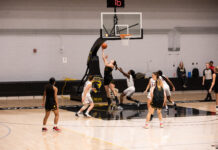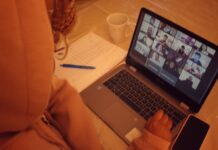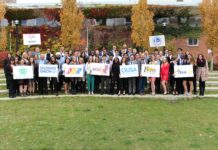Undergraduate students at UW will have the opportunity to join a growing global movement that is aiming to hold one of the world’s premier rogue states accountable for its crimes Jan. 25. Where governments have failed for decades, members of civil society, including thousands of university students, are stepping up and responding to Palestinians’ call for solidarity. Severing ties with Israeli institutions is a vote for academic boycott, part of the global Boycott, Divestment, and Sanctions movement. Members of the BDS movement have three clearly articulated demands ­— boycott, divest, and sanction Israel until the Israeli government:</p>
1. Ends its occupation and colonization of all Arab lands occupied in June 1967 and dismantles the Wall;
2. Recognizes the fundamental rights of the Arab-Palestinian citizens of Israel to full equality; and
3. Respects, protects and promotes the rights of Palestinian refugees to return to their homes and properties as stipulated in UN Resolution 194.
Israel’s long list of violations of international law is well documented, but what do Israeli universities have to do with state crimes? Examples abound. The Technion Israel Institute of Technology offers programs tailored to the Israeli army and Ministry of Defense; Tel Aviv University has dozens of Ministry of Defense-funded projects, and the University of Haifa has trained hundreds of officers in the Israeli Defense Forces in a special “national security and strategic studies” graduate program. Ben Gurion University offered a special grant for each day of service to students who went on reserve duty during Operation Cast Lead from 2008 to 2009 and Operation Protective Edge in the summer of 2014, in which at least 776 Palestinian children were murdered, according to Israeli human rights organization B’Tselem.
Academic boycott is not a religious or political issue; it is an ethical one. Dialogue is not enough — at UW and around the world, people are demanding accountability and an end to complicity in violations of people’s rights. We pride ourselves in our commitment to research and innovation, something our administrators have identified that we share with universities like Technion in Israel. But contributions to technological progress do not release a persistently criminal state from accountability.
A vote for ‘Yes’ is a declaration of our opposition to Israel’s illegal, violent, and discriminatory policies. A vote for ‘Yes’ on Jan. 25-27 is a rejection of the idea that events in Palestine are acceptable as they are, and asserts our confident participation as students in a growing and diverse protest movement against Israel’s racist policies.
Rachel Thevenard
<
p style=”text-align: right;”>
2B Environment































